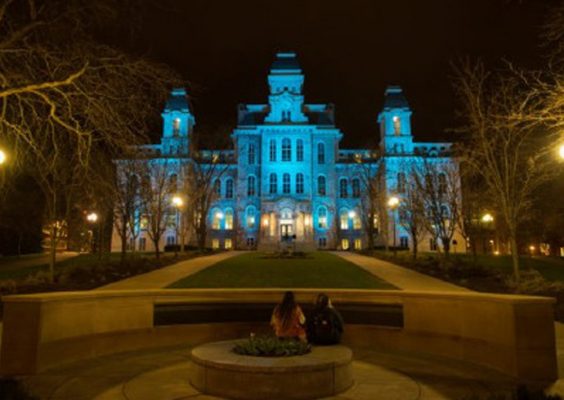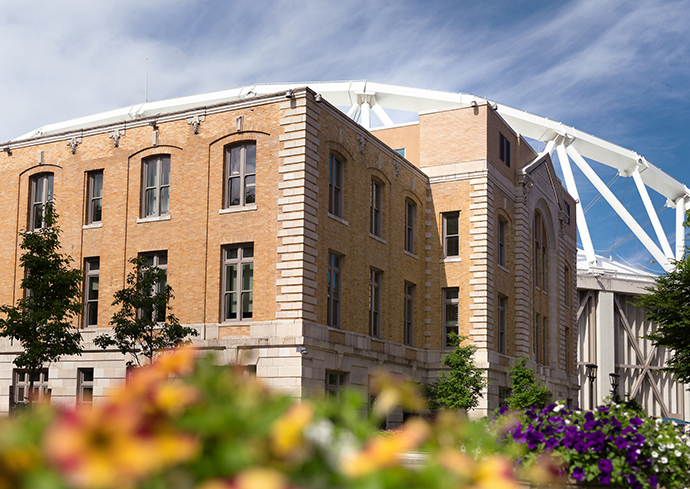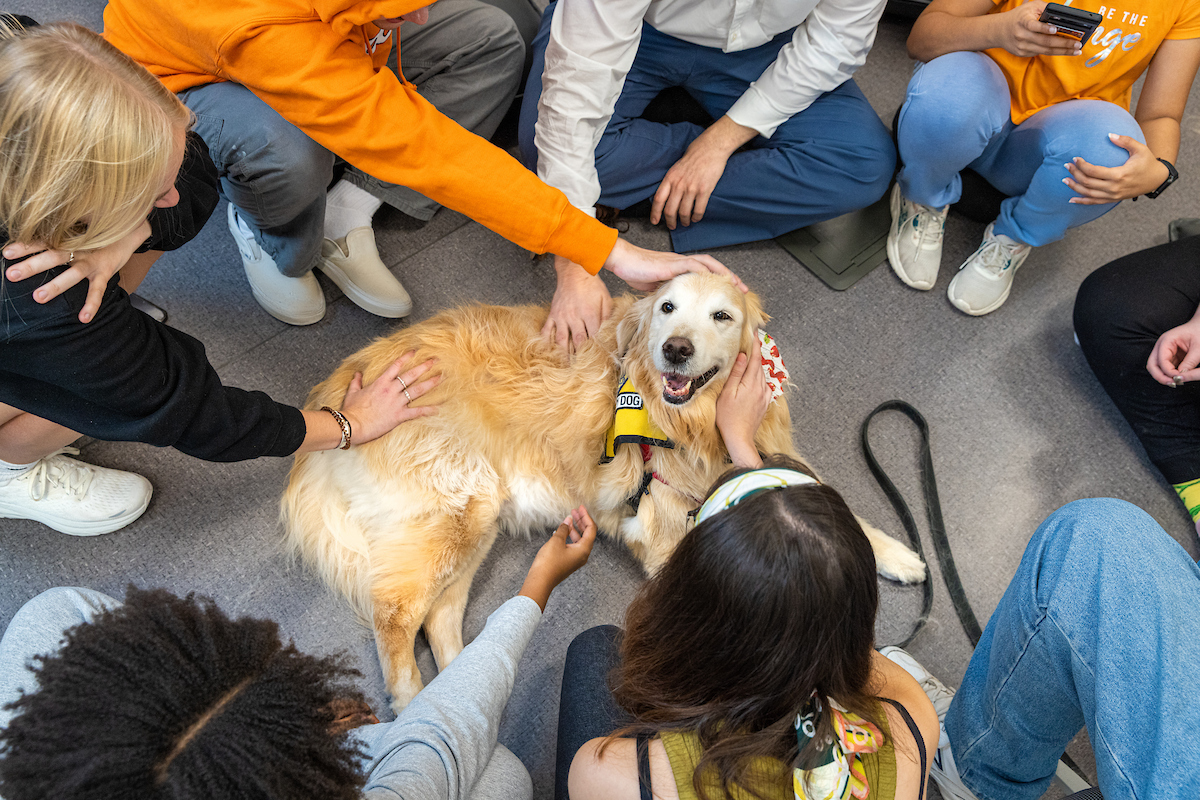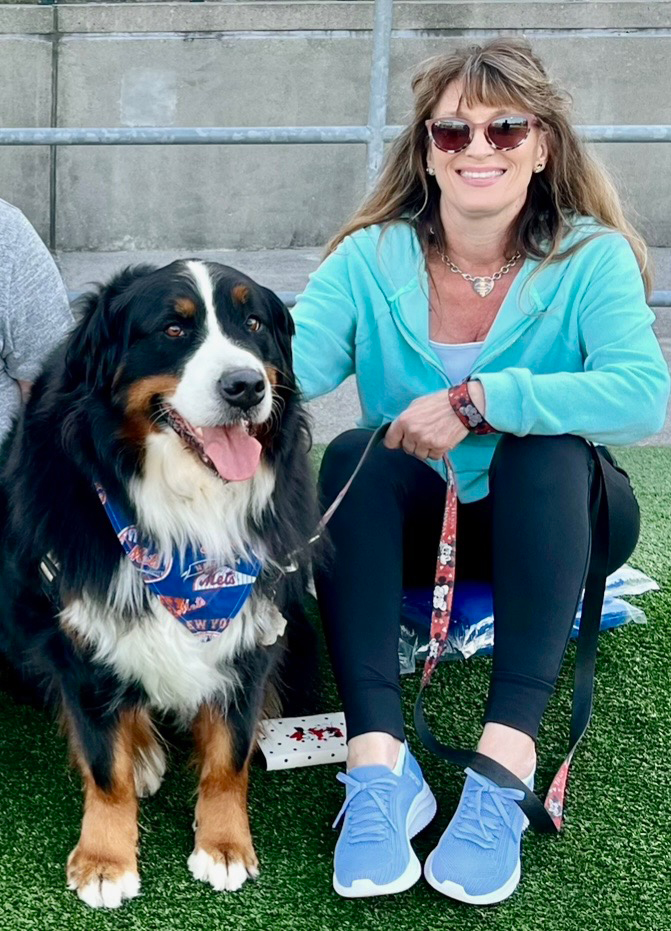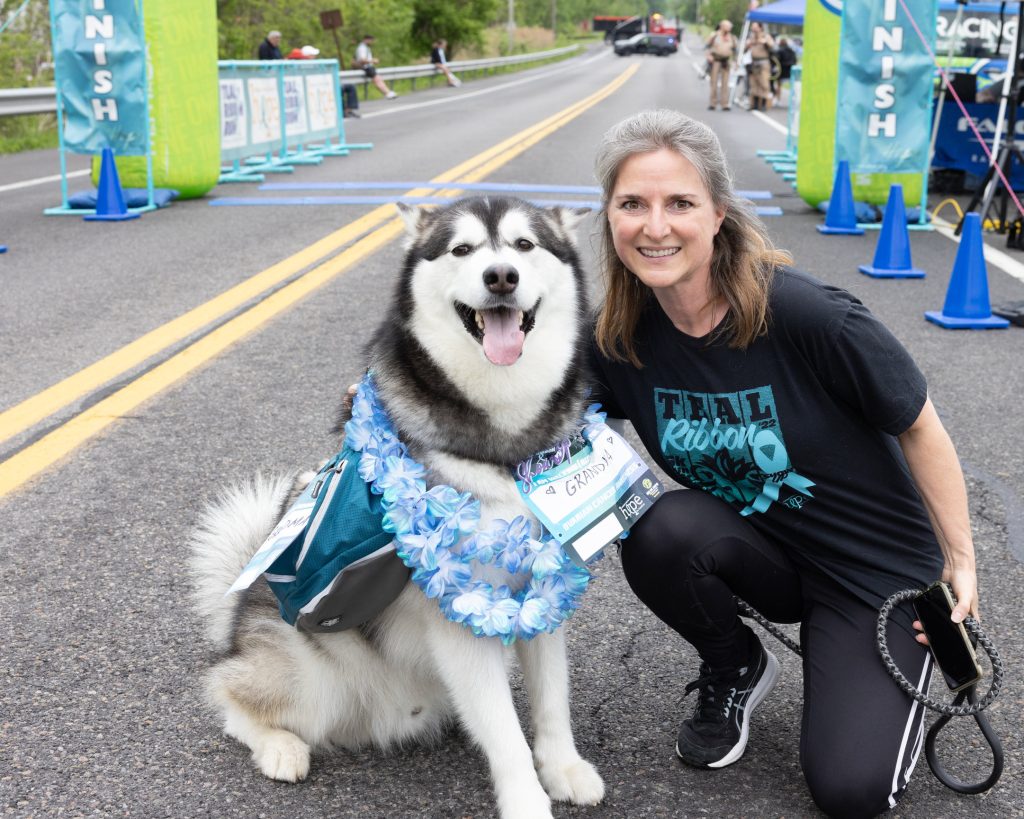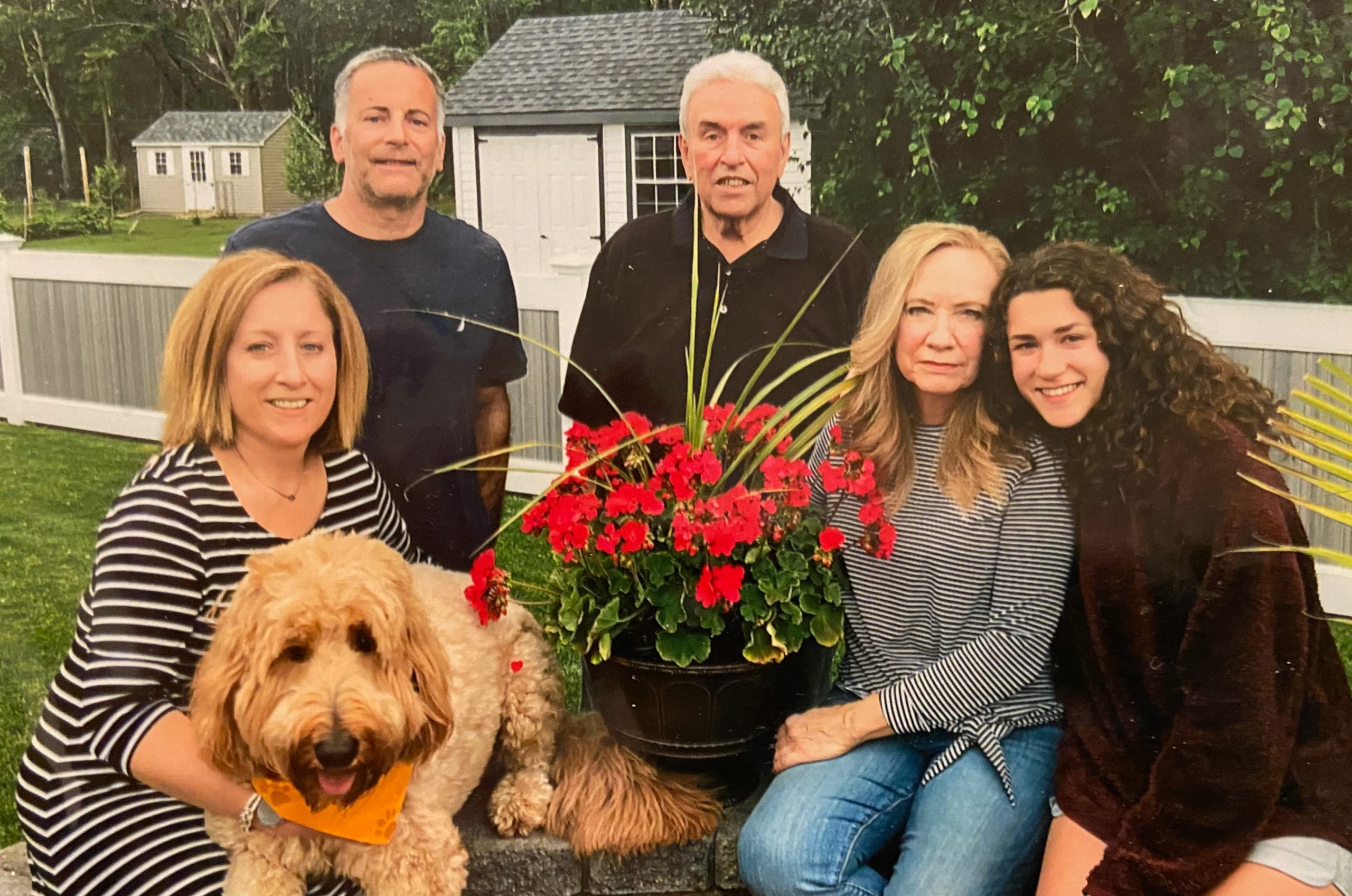Lab THRIVE, short for The Health and Resilience Interdisciplinary collaboratiVE, is making significant strides in collegiate mental health research.
Launched by an interdisciplinary Syracuse University team in 2023, the lab focuses on understanding the complex factors affecting college students’ adjustment to campus life, with an emphasis on both risk and protective factors that influence psychological well-being.
The lab combines quantitative, qualitative and mixed methods to analyze student mental health trends and to develop strategies to improve campus support systems. In just over a year, researchers have already published academic papers in competitive journals and launched several studies examining resilience, belonging, help-seeking behaviors and mental health outcomes among Syracuse students.
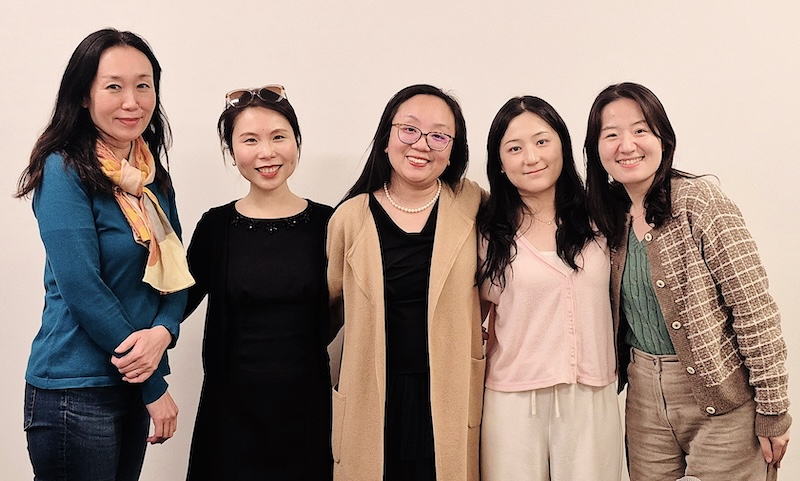
The Lab THRIVE team. From left to right, Michiko Ueda-Ballmer, Qingyi Yu, Yanhong Liu, and counseling and counselor education doctoral students Xihe Tian and Eunji Park. Lab members absent from the picture: doctoral students Sarah Litt. Kahyen Shin, Emily Beauparlant and Si Gao
Born to THRIVE
The lab’s interdisciplinary approach brings together researchers from counseling, public affairs and policy.
It is co-led by Yanhong Liu, associate professor of counseling and counselor education in the School of Education; Qingyi Yu, associate director of health and wellness research at the Barnes Center at The Arch; and Michiko Ueda-Ballmer, associate professor of public administration and international affairs in the Maxwell School of Citizenship and Public Affairs.
“It started when Dr. Yu invited me to join the Barnes Center’s research committee,” Liu says. The committee, formed in 2022, focused on Universitywide data related to student wellness and program effectiveness.
As Liu, Yu and Ueda-Ballmer examined the data, their overlapping research interests became clear. For instance, Liu’s expertise in positive psychology and the mental health of marginalized youth complemented Ueda-Ballmer’s work on social determinants of health and suicide prevention.
Liu saw an opportunity to create a structured research hub that would not only deepen their understanding of student mental health but also train doctoral students. “Our doctoral students were eager to engage in meaningful research,” Liu says. “We wanted to create a space where they could contribute to projects with real-world impact.”
Data-Driven Support
By 2023, Lab THRIVE was established as an interdisciplinary hub.
“Many research projects conducted within the lab aim to offer a holistic view of the integrated health and wellness of Syracuse University students,” Yu says. “The primary goal is to better understand the predictors and protective factors that influence students’ overall well-being, providing valuable insights into the areas that need the most attention for improving student health and wellness.”
The lab’s pilot study used two years’ worth of data to examine the association between students’ engagement in wellness activities—such as physical exercise, the Deborah A. Barnes Pet Therapy Program and the Crowley Family MindSpa—and their mental health outcomes. This research identified wellness activities as predictors of reducing depressive symptoms among students.
Another study explores international students’ help-seeking behaviors, identifying the importance of resilience in improving students’ mental health.
“All our studies provide data-driven support for strategic planning within the University’s health and wellness initiatives,” Yu says, “ensuring that resources are allocated effectively and addressing the most critical factors influencing students’ well-being.”
Clear Intentions
Sarah Litt, a second-year doctoral student in counseling and counselor education, says that her work with Lab THRIVE is a benefit of attending Syracuse: “Opportunities for research like this are rare in counseling programs.”
Litt contributed to the project addressing international students’ help-seeking behaviors, which became one of Lab THRIVE’s first published studies.
The paper—narrowing on gender identity, sexual minority status and academic level—revealed that male-identifying international students were less likely to seek help, while students identifying as gender or sexual minorities were more likely to seek formal support, highlighting a need for targeted advocacy and outreach.
“I learned so much from Dr. Yu about refining research questions and statistical analysis,” Litt says. “I started with a clinical focus, but the project pushed me to think more critically about data and methodology.”
Lab THRIVE’s research pipeline also complements student support programming at Syracuse. “Our findings are helping the Barnes Center understand what works—and what doesn’t—when it comes to supporting student well-being,” Liu says. “We may not see a whole lot of products now, but what is most important is the development of a solid pipeline and clear intentions about every project we initiate.”
Sense of Belonging
A key element of Lab THRIVE’s success is its wider cross-campus collaborations. The lab works closely with the Barnes Center at The Arch, Office of Diversity and Inclusion, TRIO Student Support Services (part of the School of Education’s Center for Academic Achievement and Student Development) and the Center for International Services to recruit participants for ongoing focus groups. Starting in fall 2025, these focus groups will explore how students experience campus life and seek mental health support.
“We want to understand not just the barriers to help-seeking but also what promotes a sense of belonging,” Ueda-Ballmer says. “We’ve learned that students who feel connected to their peers and the campus community report lower levels of loneliness and distress.”
Doctoral students such as Litt are actively involved as facilitators in these focus groups, gaining hands-on research experience while contributing to meaningful data collection. “It’s a unique learning opportunity,” Litt says. “I’m getting exposure to public health and data analysis alongside my counseling training.”
Yu adds, “These conversations provide rich qualitative data that helps us better understand how students find community and feel a sense of belonging at Syracuse University.”
Building a Legacy
Lab THRIVE’s work is offering insights to professionals beyond Syracuse. Last year, Liu, Yu and Ueda-Ballmer presented their findings at national conferences, including at the 2024 Association for Psychological Science Annual Convention.
“We were part of a panel on loneliness,” Ueda-Ballmer says. “The audience was surprised to learn that college students experience such high levels of loneliness despite being surrounded by peers. That reinforced how critical it is to promote belonging and support.”
Fittingly, given her research interests, Litt finds the lab experience supportive on a personal level: “It can be a really lonely journey at times with doctoral studies, but when collaborating, especially with people going through a similar process, it really creates a sense of community.”
When asked where she thinks the lab’s future lies, Liu points to expanding its research capacity and increasing student involvement: “We hope to publish more studies and attract more doctoral students to the lab. It takes time to build momentum, but we’re already seeing meaningful results.”
Yu says another exciting direction is expanding the lab’s interdisciplinary collaborations: “We are actively seeking partnerships with researchers from other fields to examine how emerging areas—such as artificial intelligence—can contribute to a deeper understanding of students’ mental health.”
Litt agrees with this outlook, concluding, “There’s so much crossover between psychology, counseling, sociology and public health. I hope Lab THRIVE continues to grow as a model for interdisciplinary research and training.”
Story by Ashley Kang ’04, G’11

